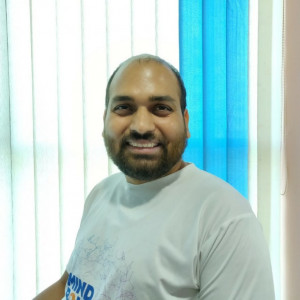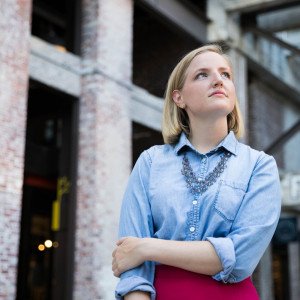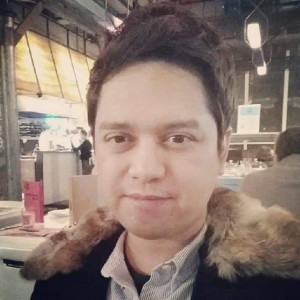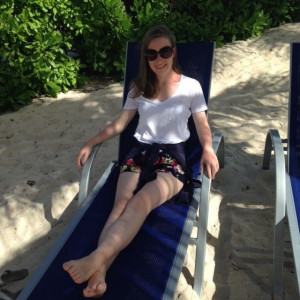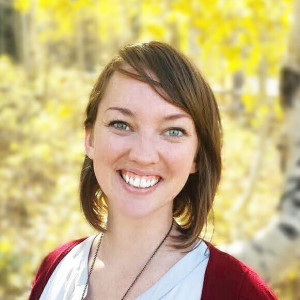How did you get started with remote work?
Interview with Ayush, a CEO and avid remote team builder
Well, for me, embracing remote work was a part of the experiments I do with myself. I keep checking out newer ways of working, sleeping patterns, and managing my team.
I started with remote work since I was working on scaling up my team and finding ways on how an organization should work without any micromanagement.
We have come a long way since then, and now we are managing teams in five countries.
Ayush is a CEO that is committed to helping companies build successful remote teams—see his process and tips for developing location independent teams that thrive.
Read full interview from Interview with Ayush, a CEO and avid remote team builder.
Interview with Gregory, a Senior Software Developer
I was 19 and working for a very small website development shop out of the owner's in-law suite in their house. It was my first real job as a software developer, and I came into the "office" most days.
But everything was done from my laptop, so whenever the owner needed the space, I would work from home. And slowly I began working from home even when it wasn't strictly necessary.
When I left that job, I joined a company that was semi-remote (they went into the office once a week), and I was the youngest by about 20 years. The devs there taught me how to manage remote work well, and a lot of the habits and skills related to working from home that I formed at that time are still going strong.
I was able to skip a lot of the biggest "pain points" of remote work - and to avoid a lot of the mistakes - simply because that company was already well versed in working remotely.
They were able to give me the tools to succeed, and they already had the communication system down very well, which helped a ton.
Gregory is a senior software developer working from home - learn how he finds the balance between lack of focus and hyperfocus.
Read full interview from Interview with Gregory, a Senior Software Developer.
Interview with Liz, a UI/UX designer and cowork advocate
It was a bit of a happy accident! I started to work at a company where my team met a few times of the week outside of the office to cowork in cafes.
We would grab lunch all together as a team, and it created such a relaxed and collaborative environment. I had never worked remotely before, and I loved the balance it struck between office life and remote life.
Liz is a traveling UI/UX designer—see her strategy for thriving as a digital nomad and her efforts to promote coworking.
Read full interview from Interview with Liz, a UI/UX designer and cowork advocate.
Interview with Gino, a founder skilled in building remote teams
I got started with remote work back in early 2015 when I moved to the Bay Area (I’m living in Seattle now and loving the Pacific Northwest). By that time, I had spent around a year working with my team in an office in Lima, Peru.
In 2015, we decided that we would start hiring remote team members based throughout the Americas and not just Lima. That’s what got us started in remote hiring.
We started hiring great people in Argentina, Mexico, Chile, and all of a sudden; we had a company with half remote team members and half in-office team members.
It wasn’t long before many of the team members in our Lima office started requesting to work from home. One of our engineers had to commute for an hour and a half each way (to and from the office).
What’s crazy is that the vast majority of companies throughout Latin America continue to operate this way — basically expecting employees to commute for a couple of hours a day on average. Remote work is growing in Latin America, but more slowly than in other parts of the world.
It’s embarrassing to think that we didn’t think about going remote earlier. Once we did, we noticed a spike in productivity and everyone was citing improved work-life balance.
Soon after, we decided to let go of our office altogether in order to become a 100 percent remote company. Today, we have team members from the U.S., Mexico, Chile, Peru, Argentina, Brazil, and others. We all work from home.
Gino realized how important remote work could be to finding the best talent—see his strategies for building remote teams.
Read full interview from Interview with Gino, a founder skilled in building remote teams.
Interview with Digital Nomad Sage, an entrepreneur and UX consultant
I had just come back from teaching abroad in South Korea and was applying for jobs in 2015. I had a really hard time because I was overqualified for many jobs with a Masters degree, and I lacked the experience to get entry-level jobs.
I tried studying Web Development but quickly lost interest since I’m not really good at coding. I came across Youtube videos about Amazon FBA, so I became a Fulfillment by Amazon Seller for pet supplies, but that didn’t work out.
My former Japanese language professor saw my struggles and decided to take me under his wing in 2017 and hired me into his UX company. Thanks to him, I have about two years of experience in UX Research working remotely!
My primary job is as a UX Consultant assisting my boss with UX Research.
From e-books to blogging, Digital Nomad Sage has become an expert on making money online—see his advice for developing an online business.
Read full interview from Interview with Digital Nomad Sage, an entrepreneur and UX consultant.
Interview with Paul, a remote product designer who has found his zen
Like many around the world today, the Covid-19 pandemic saw me retreating from the office to the safety of home, where Ireland announced a national lockdown back in March. Fortunately, the move was quite seamless as the company I work for —Global Payments—uses GSuite.
I have teammates and colleagues based in the United States and India, so it makes no difference whether I am sitting in the office or at home when on a Google Meet call with them.
As it happens, prior to the pandemic, the idea of working remotely more often was beginning to appeal to me. I wasn’t too sure when to take the plunge but was on the verge of doing a couple of trial weeks when the pandemic fast-tracked all that. Covid-19 anxieties aside, I’ve enjoyed it so far.
The COVID-19 pandemic drove Paul to embrace remote work. See how he has adapted his routine to this new normal, and the one tool that keeps him organized.
Read full interview from Interview with Paul, a remote product designer who has found his zen .
Interview with Betsy, a head of content and remote work routine expert
In 2012, I had recently finished grad school and was looking for a new job. I was tired of moving and wanted to stay in the same place, but I knew that I might not find the exact position that I wanted where I was living. Therefore, I started a blog and began researching and looking for work that I could do remotely.
I love the flexibility of remote work and wouldn't change it for anything!
I was also doing a certificate program part-time and knew that I needed a job that could be done flexibly on my own schedule. After a few months of searching, I found a position as a social media manager in the Personal Development space.
Since then, I have worked in many remote teams, primarily in content related roles.
Betsy Ramser is a content manager, blogger, and teacher who helps other remote workers thrive while creating a daily routine that works.
Read full interview from Interview with Betsy, a head of content and remote work routine expert.
Interview with Laurel about helping companies transition to remote work
I like to say that I was a remote worker before it was cool.
About 12 years ago, I became the operations manager for a very small business in Colorado. I was the first employee, so in order to keep overhead expenses low, I offered to work from home like the business owner had been.
We would conduct our work autonomously throughout the day, have weekly meetings to report, and stay in touch via email in between. We lived in the same city, so if we needed to have an in-person meeting with each other or with a client, we would meet at a rented conference room or a cafe.
That industry had a high-season and a low-season, so during the slow months, I reached out to other entrepreneurs and small business to offer administrative assistance with the same work model.
Fast forward a decade and I am still doing the same work on a much larger scale as an operations consultant for remote-friendly companies around the world.
Laurel is an advocate for remote work and helps companies learn how to work remotely through her consulting and writing.
Read full interview from Interview with Laurel about helping companies transition to remote work.
Interview with Saibu, an HR content writer for a remote company
My journey started when I was still a student at the University. That time, I needed a hustle that would make me some cash, and after trying many options, I settled on content writing. That got me started – searching for remote work. I landed a few gigs, both short and long-term.
So after graduating in 2016, I decided to go into remote working full-time. Things weren’t that smooth, so I had to take some on-site jobs from time to time. But I realized at a point that on-site jobs aren’t just for me – and went into remote full-time. And, I’ve been working remotely since 2014.
Hear how Saibu, a thriving HR content writer, navigates the complexities—and perks—of working with a remote team from Ghana.
Read full interview from Interview with Saibu, an HR content writer for a remote company.
Interview with Laura, a communications specialist and travel writer by night
I've always had a side hustle as a freelance writer, so I've always worked remotely part-time for various publications. But two years ago, I landed a great full-time gig as a communications specialist with a WordPress website design and development agency called WebDevStudios.
So by day, I work remotely with a team of talented people. By night, I continue working from home writing articles and blog posts.
Laura Coronado discusses her method for juggling her career as a communications specialist by day and her side hustle as a freelance travel writer by night.
Read full interview from Interview with Laura, a communications specialist and travel writer by night.
